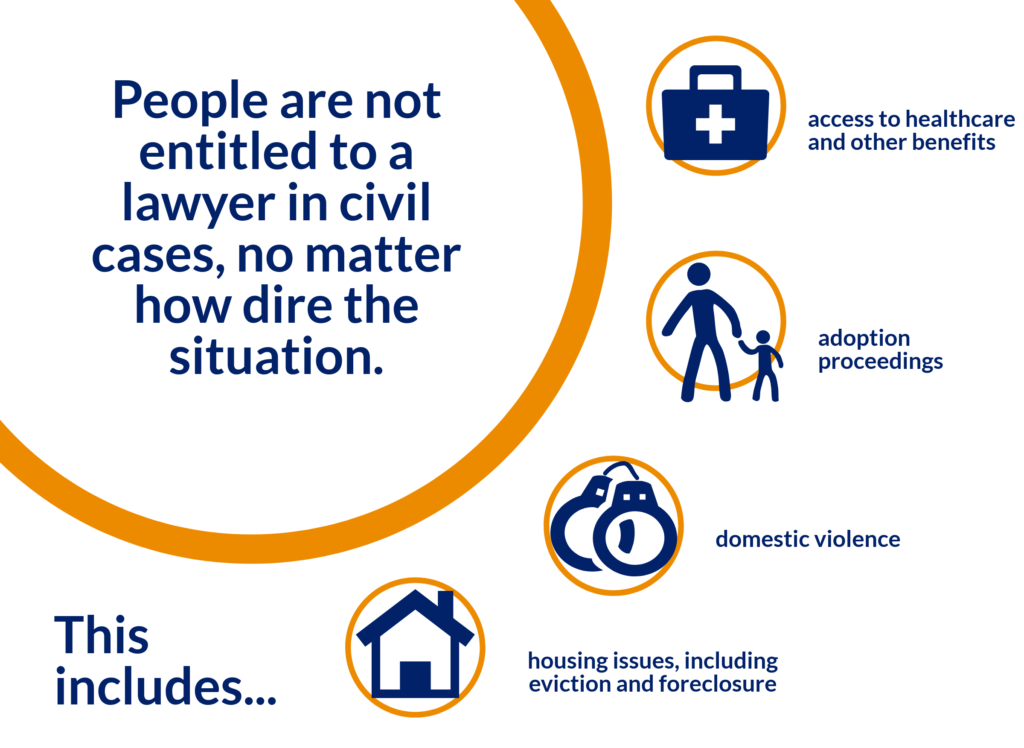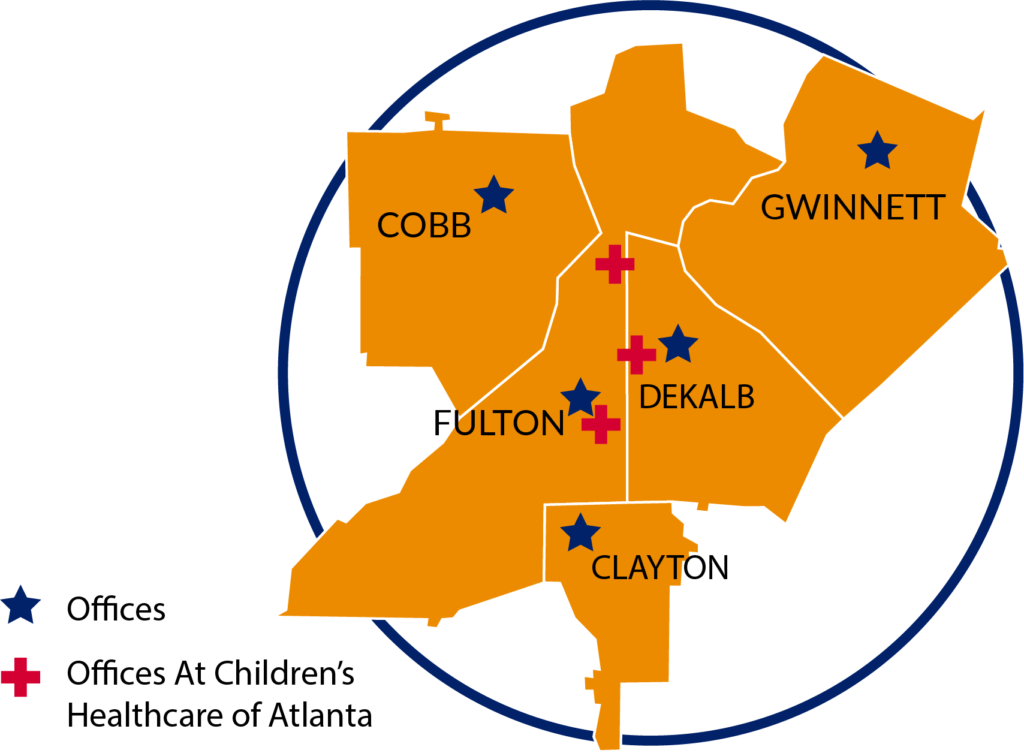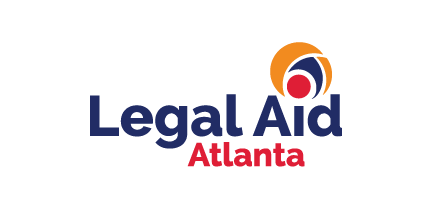What is a civil case?

Did you know? In the U.S., people are not legally entitled to a lawyer in civil (non-criminal) cases, no matter how dire the situation. That means that with cases concerning domestic violence, eviction, public benefits, and adoption proceedings (among others), people must pay out of pocket or attempt to represent themselves in court. For people living in poverty, paying for these legal services is often out of the question.

Imagine that you are suffering from kidney disease and have an upcoming surgery scheduled. A few weeks before your surgery, your car breaks down and the mechanic tells you it can’t be fixed. You have to make it to your upcoming appointments for your surgery, but your friends and family are working during the day and are unable to take you. You have enough money to buy a used car and so you do, driving off the lot feeling relieved that you will be able to make it to your doctor’s appointments and get your scheduled surgery. But then, two days after you buy the car, everything breaks down, all at once. To make matters worse, you realize that the dealership did not give you the proper title to your car. You don’t have enough money to hire a lawyer and you don’t know where to turn.

Or imagine that your sibling has a developmental disability. As they get older, they need more support from healthcare professionals who understand their unique needs. However, your sibling doesn’t receive any financial support from the government, and without the proper support, their behavior gets more difficult to manage. In adulthood, they find themselves going in and out of state mental health hospitals because their behavior is not widely understood, and they are not receiving the proper support in the community. You and your family help as much as you can, but you are finding it increasingly difficult to care for your sibling and hold down a full-time job. It’s hard to figure out what types of support your sibling is entitled to under the law or how to get them the support they need.

Or imagine that you find yourself suddenly caring for your nephew. Your sibling is no longer able to care for their child, so you take the child into your home to care for him. When you try to enroll your nephew in school or take him to the doctor’s office, you realize that you can’t do either of those things without legal guardianship. Unable to afford a lawyer to sort out the guardianship, you try to go it alone, but the forms and the process are long and confusing, and you are unable to gain guardianship of your nephew or get him the services he needs.

Or image that you live in a rental apartment with your two children. The apartment has fallen into disrepair, and your landlord has refused to make vital fixes to your apartment. The ceiling is crumbling from a leaky pipe in the apartment above yours, and mold is growing as a result. When you complain to apartment management about the conditions, which are worsening your child’s asthma, your landlord serves you an eviction notice. Despite the fact that you have always paid rent on time and never damaged the apartment, you find that you are facing potential homelessness.
These are real examples of a few of the scenarios that our clients face daily. And because their issues are not criminal, they are not entitled to a lawyer. Those that are able to afford a lawyer find that they get better outcomes, and are often able to secure legal protection or redress for the issues they face. Those that are not able to afford a lawyer tend to have worse outcomes. This disparity means that justice is not equally distributed.
That’s where Legal Aid comes in. We increase access to justice for low-income people across metro Atlanta by providing free legal guidance and representation. With the help of a lawyer, our clients have a higher likelihood of securing a positive outcome.
We helped the woman with the faulty car receive compensation against the dealership.
Our lawyers fought alongside the family trying to get proper support for their family member with a developmental disability so that they could live a fulfilling life in the community.
We ensured that the family who became caregivers to their nephew established a legal relationship and had access to other important resources.
And every year, we help over 1,500 people stay in their homes.

Legal aid organizations exist in all 50 states, but our nonprofit organization serves the five county Atlanta and metro-Atlanta area (Fulton, DeKalb, Cobb, Gwinnett, and Clayton). Visit atlantalegalaid.org/about-us/our-work/ to learn more. If you’re interested in donating to sustain this vital work, click the button below:
